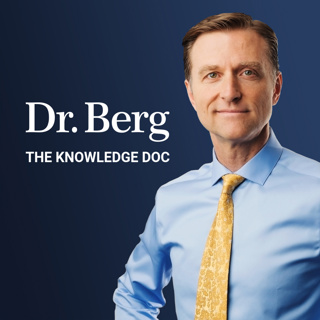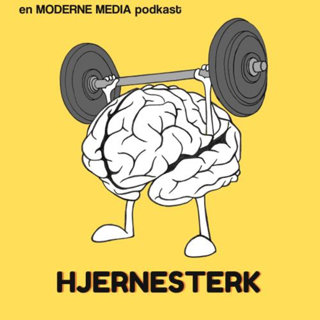
The #1 Cause of Arterial Stiffness (Hypertension)
Unfortunately, heart attacks, strokes, and high blood pressure are common problems. So, today we’re going to talk about what causes arterial stiffness or calcified arteries. Common causes of stiff arteries: • Age • Inflammation • A high-carb, high-sugar diet • Omega-6 fatty acids There is one additional cause of hardened arteries that many people are unaware of, and it’s a vitamin K2 deficiency. Vitamin K2 drives calcium into the bones to help make them stronger and keeps calcium out of the arteries and the walls of the arteries. Vitamin K2 may decrease the risk of heart attack by 50 percent. Foods high in vitamin K2: • Meats • Organ meats • Egg yolks • Grass-fed butter • Dairy • Yogurt Adding vitamin K2 to vitamin D3 is a fantastic way to support the arteries. For every 10,000 IU of vitamin D3 you take, you should also consume 100 mcg of vitamin K2. It’s important to note that people who take a calcium supplement (1,000 mg or more a day), with or without vitamin D, increase the risk of a heart attack. This could be because of the lack of vitamin K2. It’s also important to keep in mind that one of the side effects of warfarin is vascular calcification. To support the arteries, get on a low-carb diet, avoid omega-6 fatty acids, and consume foods rich in vitamin K2. If you take a vitamin K2 supplement, it may be best to take vitamin D3 as well. DATA: https://www.ncbi.nlm.nih.gov/pmc/arti... https://pubmed.ncbi.nlm.nih.gov/22516... https://www.ncbi.nlm.nih.gov/pmc/arti...
8 Okt 20236min

The #1 Top Warning Sign You Have a Fatty Liver
Today, we’re going to talk about the warning signs of a fatty liver and what to do for a fatty liver. There really is no “first sign” of a fatty liver. When you first start developing a fatty liver, there are no symptoms at all. It’s important to be aware of this because many people have a fatty liver and don’t even know it. People will start to notice signs once the condition has progressed. Signs of a fatty liver: • A protruding mid-section • Insulin resistance Fifty-nine percent of the fat in your liver originates from outside your liver—it’s fat from other places in your body that end up in the liver. Twenty-six percent of fat in the liver comes from the liver itself. The liver makes fat from glucose, and insulin is supposed to stop this process. But, because of dysfunctional fat and insulin resistance, the liver is making sugar uncontrollably. The third source of fat in the liver is dietary fat from consuming sugar. I believe the top cause of a fatty liver is a high-carb diet. The good news is that the liver is the only organ that can completely regenerate. However, there is a point of no return, so it’s time to act now. Natural things to do for a fatty liver: 1. Get on the Healthy Keto® diet and do intermittent fasting 2. Exercise regularly 3. Consume one to two tablespoons of apple cider vinegar in your water a few times a day
8 Okt 202310min

The Best Time of the Day to Take Vitamins
Today we’re going to talk about the best time of day to take vitamins. These results can vary from person to person, so overall, you’ll have to test things out and see what works best for you and your schedule. You’ll still notice plenty of benefits however you choose to take your vitamins. There are two types of vitamins: water-soluble vitamins and fat-soluble vitamins. Fat-soluble vitamins can be absorbed better if taken with fat or before a meal. But, if you’re fasting, you can take vitamins whenever. Cod liver oil: Cod liver oil is a great source of fat-soluble vitamins, and you can consume cod liver oil anytime. However, it may be best not to take it right before bed. Vitamin E: Vitamin E should be taken in the form of tocotrienols and is great to take with meals. Phytonutrients: Many phytonutrients are fat soluble, and this is why it’s great to have olive oil on your salad because it will help extract more phytonutrients. Take phytonutrient supplements and wheatgrass juice with a meal for better extraction. Betaine hydrochloride: Betaine hydrochloride should be taken right before a meal. Digestive enzymes: Digestive enzymes should be taken before a meal. Bile salts or products with bile: Bile salts can be better taken right after a meal. What to take on an empty stomach: • TUDCA • Activated charcoal • Bentonite clay • Individual amino acids • Trace minerals What to take before bed: • Calcium • Magnesium • Probiotics • Vitamin D3 • Vitamin B1 • Detox herbs • Apple cider vinegar What to take in the morning • Electrolyte powder • Vitamin B12 • Stimulatory herbs
7 Okt 202313min

The #1 Vitamin Deficiency behind Bladder Issues (Freq. Urination, Leaky, Urgency)
Today we’re going to talk about the #1 vitamin deficiency behind bladder issues: vitamin B1 deficiency. A vitamin B1 deficiency could lead to problems, including: • Leaky bladder • Incomplete urination • Frequent urination • Getting up in the middle of the night to urinate The common thread behind these bladder issues is actually a problem with the nervous system. The main control with urine elimination stems from the brain, and this part of the brain is very sensitive to a vitamin B1 (thiamine) deficiency. A thiamine deficiency in the brain can even starve off certain neurons, causing a lack of function. The part of the brain that controls the bladder can shrink, leading to a loss of control of the bladder. This situation is common with age and in those with diabetes, prediabetes, or chronic insulin resistance. Natural tips to get rid of bladder issues: 1. Take vitamin B1 (benfotiamine and natural B1) 2. Get on the Healthy Keto® diet and do intermittent fasting 3. Drink 2.5 liters of fluid a day (not past 6 pm or 7 pm) 4. Consume apple cider vinegar (1 to 2 TBSP in water) 5. Reduce caffeine consumption 6. Massage the bladder DATA: https://pubmed.ncbi.nlm.nih.gov/19386... https://pubmed.ncbi.nlm.nih.gov/19846... https://www.ncbi.nlm.nih.gov/pmc/arti... https://www.ncbi.nlm.nih.gov/pmc/arti... https://www.ajnr.org/content/29/1/164 https://pubmed.ncbi.nlm.nih.gov/25846... https://pubmed.ncbi.nlm.nih.gov/15664... https://pubmed.ncbi.nlm.nih.gov/15664... https://onlinelibrary.wiley.com/doi/a... https://pubmed.ncbi.nlm.nih.gov/19194... https://repository.kulib.kyoto-u.ac.j... https://pubmed.ncbi.nlm.nih.gov/20369... https://www.hormonesmatter.com/thiami...
7 Okt 20238min

The 3 Vitamin Deficiencies in Sciatica and Carpal Tunnel Syndrome
Today I’m going to share three common nutritional deficiencies related to sciatica and carpal tunnel syndrome and ways to tell which one might be affecting you most. Vitamins B1, B6, and B12 are intimately involved in the nervous system and may be behind these painful conditions. 1. Vitamin B6 benefits • Helps build the myelin sheath • Helps produce neurotransmitters • Helps protect sensory nerve integrity • Helps increase nerve conduction and velocity • Is involved in the metabolism of the nervous system Vitamin B6 deficiency causes: • Taking the wrong form of vitamin B6 in large amounts • Gut inflammation • Celiac disease • Crohn’s disease • Age • Certain medications • Alcohol • Birth control pills • Certain genetic variations • Smoking • Diabetes • Excess coffee consumption * It’s important to take the active form of vitamin B6, pyridoxal-5-phosphate (P5P). 2. Vitamin B12 benefits: • Helps support nerve regeneration • Helps support myelin production • Helps support nerve growth factors Vitamin B12 deficiency causes: • Certain genetic factors • Lack of animal products in the diet • Low stomach acid • Excess consumption of folic acid • Alcohol • Diabetes • Malabsorption • Birth control pills * It’s important to take the natural form of vitamin B12, methylcobalamin. 3. Vitamin B1 (thiamine) benefits: • Helps support blood flow to the nerves • Helps counter the complications of diabetes Vitamin B1 deficiency causes: • Diabetes, prediabetes, and insulin resistance • Excess coffee consumption • Excess tea consumption * It’s important to take the fat-soluble version of vitamin B1, benfotiamine. DATA: https://www.sciencedirect.com/science... https://www.ncbi.nlm.nih.gov/pmc/arti... https://www.ncbi.nlm.nih.gov/pmc/arti... https://pubmed.ncbi.nlm.nih.gov/30712... https://www.ncbi.nlm.nih.gov/pmc/arti...
7 Okt 202311min

Use Your EAR to Predict a Heart Attack
There is an interesting predictor of a heart attack that you can look for right now. Go to the mirror and look for a crease on your ear lobe, starting where the hole is and coming out 45 degrees. Coronary artery disease or cardiovascular disease causes you to lose blood flow to the heart muscle. A chronic lack of blood flow to the heart causes the loss of circulation in the peripheral parts of the body first, like the ear lobes. Without this blood supply to the ear lobes, you can develop this crease. This crease shows up in about 71% of people with heart disease. However, it has also been found to appear in other health conditions like diabetes and high blood pressure. People who smoke may also notice this crease, but it’s most commonly seen in people with heart problems. It’s important to act now to support a healthy heart: 1. Get on the Healthy Keto® diet and do intermittent fasting 2. Exercise regularly 3. Take tocotrienols 4. Consume omega-3 fatty acids (cod live oil) 5. Take vitamin K2 with vitamin D3 DATA: https://academic.oup.com/omcr/article... https://www.ncbi.nlm.nih.gov/pmc/arti...
6 Okt 20234min

Take These 5 Vitamins to STOP Diabetic Complications Now
Today I’m going to share five vitamins that can help with the complications of diabetes. High blood glucose affects four main tissues, including: 1. The eyes 2. The arteries 3. The nervous system (including the brain) 4. The kidneys However, the damage to these tissues can lead to a myriad of health problems. Glycation is a combination of sugar and protein in the body, and it can lead to this dysfunction of tissues. An A1C score is basically a number that represents glycated hemoglobin (a protein in red blood cells) to help tell how bad someone’s diabetes is. Glycation can also occur when someone consumes a combination of sugar or carbs and protein or fat. When glycation occurs, it can build up into advanced glycation end products (AGEs). With AGEs comes a lot of free radical damage, inflammation, and oxidative stress. The good news is that there are natural things that can inhibit glycation. Vitamins that inhibit glycation: 1. Benfotiamine 2. Vitamin C 3. Vitamin D 4. Vitamin E (tocotrienols complex without tocopherols) 5. Vitamin B6 Other natural glycation inhibitors: • Alpha lipoic acid • Green tea (EGCG) • Aged garlic • Bitter melon • Quercetin • Curcumin • Fasting • Exercise DATA: https://pubmed.ncbi.nlm.nih.gov/19409... https://www.e-pan.org/journal/view.ph...
6 Okt 202310min

6 Reasons for Calcium Deposits (Spurs, Osteophytes, Stones, and Tartar)
Today, we’re going to talk about what causes calcium deposits and the best remedies for calcium deposits. Top causes of calcium deposits and natural remedies: 1. Inflammation Natural solutions: • Keep the joints in motion • Vitamin D3 • Omega-3 fatty acids 2. Alkalosis Natural solutions: • Apple cider vinegar • Betaine hydrochloride • Healthy Keto® • Cal-Amo (Standard Process) 3. Hypercalcemia Natural solutions: • Avoid taking too many calcium supplements • Vitamin D3 4. Hyperparathyroidism Natural solutions: • Vitamin D3 5. Low phosphorus Natural solution: • Phosfood (Standard Process) 6. Biofilms 7. Low vitamin K2 Natural solutions (foods high in K2): • Hard cheeses • Soft cheeses • Butter • Eggs • Sauerkraut 8. Low magnesium Natural solutions: • Leafy greens • Electrolyte powder
6 Okt 20239min




















